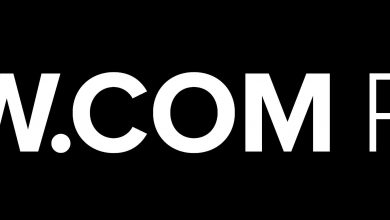The Gig Economy: How Freelancing is Reshaping the Workforce

The Gig Economy: How Freelancing is Reshaping the Workforce
What is the Gig Economy?
The gig economy refers to a labor market characterized by the prevalence of short-term contracts or freelance work rather than permanent jobs. It’s a growing trend where individuals work temporary, flexible jobs as independent contractors, often leveraging technology platforms to connect with clients.
Why is Freelancing Becoming So Popular?
1. Flexibility: Freelancing allows individuals to have the freedom to choose their own projects, work hours, and location. This flexibility is especially attractive to those seeking a better work-life balance or individuals with other commitments.
2. Diverse Opportunities: The gig economy opens up a wide range of opportunities across various industries and skill sets. Freelancers can choose to work on projects that align with their interests and expertise, enabling them to continuously learn and grow professionally.
3. Increased Autonomy: Freelancers have the ability to be their own boss and make decisions about their work independently. This autonomy can lead to higher job satisfaction and motivation.
The Impact on the Workforce
The gig economy has reshaped the traditional workforce in several ways:
1. Rise in Independent Contractors: Companies are increasingly hiring independent contractors instead of full-time employees. This trend allows businesses to reduce costs associated with employee benefits and office space. It also offers them access to a larger talent pool with diverse skills.
2. Changing Mindset: The gig economy has challenged the idea of a traditional career path. Rather than sticking to one job or industry, individuals are embracing the concept of multiple income streams by taking on a variety of freelance projects.
3. Skill Development: Freelancing encourages individuals to continuously acquire and upgrade their skills to stay competitive. This constant focus on self-improvement helps drive innovation and enables workers to adapt to changing market demands.
Frequently Asked Questions (FAQs)
1. Is freelancing a reliable source of income?
Yes, freelancing can be a reliable source of income if approached strategically. Building a strong network, maintaining a portfolio, and consistently delivering high-quality work can help you attract clients and secure a steady flow of projects.
2. Are there any downsides to freelancing?
While freelancing offers several benefits, it’s important to be aware of the potential downsides. Challenges such as irregular income, lack of benefits, and the need for self-discipline can make freelancing somewhat unpredictable and stressful at times.
3. How can I get started as a freelancer?
To get started as a freelancer, consider following these steps:
1. Identify your skills and expertise.
2. Create an online presence through a website or portfolio.
3. Network with potential clients and industry professionals.
4. Develop a pricing strategy.
5. Start bidding on freelance platforms or reach out directly to clients.
4. Are there any legal considerations for freelancers?
Yes, freelancers should be aware of legal considerations such as tax obligations, intellectual property rights, and contract agreements. It’s advisable to consult with a legal professional or accountant to ensure compliance with the laws and regulations in your jurisdiction.
In conclusion, the gig economy has transformed the traditional workforce by offering increased flexibility, diverse opportunities, and autonomy. While freelancing has its challenges, it continues to gain popularity as a viable career option. By understanding its impact and adapting to the changing landscape, individuals can thrive and navigate the gig economy successfully.



